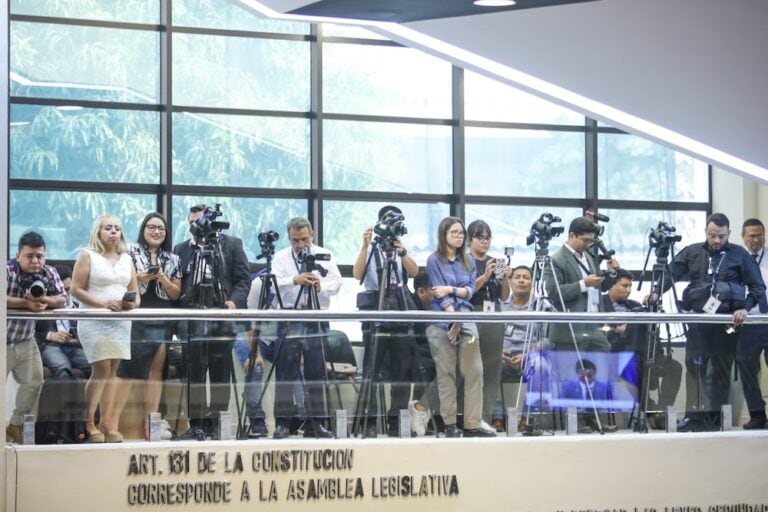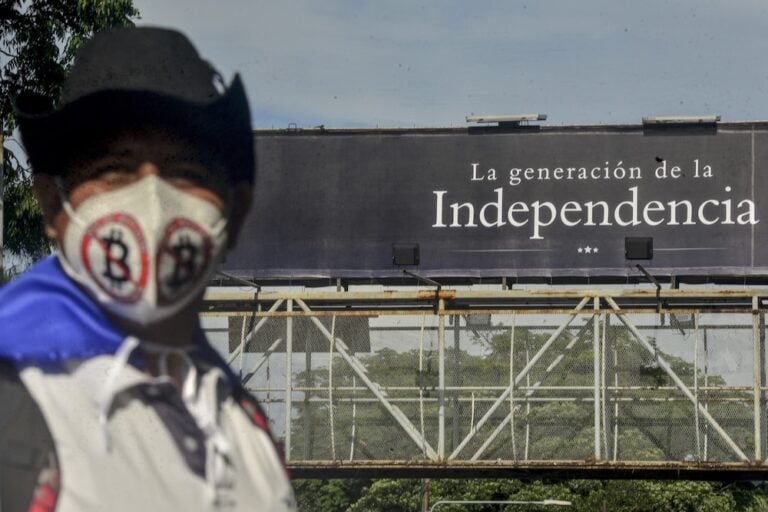(PFC/IFEX) – On 1 April 2003, a representative of the Attorney General’s Office appeared before the Nueva San Salvador Court to file a complaint for defamation against Ricardo Alfaro. Alfaro is a doctor and head of the Salvadoran Social Security Institute (Instituto Salvadoreño del Seguro Social, ISSS) doctor’s union. During a television interview, Alfaro accused […]
(PFC/IFEX) – On 1 April 2003, a representative of the Attorney General’s Office appeared before the Nueva San Salvador Court to file a complaint for defamation against Ricardo Alfaro. Alfaro is a doctor and head of the Salvadoran Social Security Institute (Instituto Salvadoreño del Seguro Social, ISSS) doctor’s union. During a television interview, Alfaro accused ISSS Director Mauricio Ramos of granting the institute’s advertising contracts to a company he was connected with. Alfaro did not provide any evidence to back up his accusation.
In El Salvador, defamation is considered a crime under Article 178 of the Criminal Code, which stipulates that publicising a defamatory statement is punishable with a prison sentence of one to three years. The Inter-American Commission on Human Rights’ (IACHR) Declaration of Principles on Freedom of Expression established that, “The protection of a person’s reputation should only be guaranteed through civil sanctions in those cases in which the person offended is a public official, a public person or a private person who has voluntarily become involved in matters of public interest.”
In a letter to Attorney General Belisario Artiga, PROBIDAD, the organisation that administers PFC, asked that he put an end to the legal action filed against Alfaro. PROBIDAD noted, “such lawsuits have a debilitating effect on the debate that is characteristic of democratic societies. The threat of legal sanctions inhibits citizens from voicing criticism and accusations.”
PROBIDAD also described the government’s demand that public criticism be accompanied by evidence as unfeasible since, “the right to access government documents and information is systematically and persistently denied.” The organisation recalled that in January it condemned the ISSS director for concealing information on contracts granted by the ISSS for hospital medical services between August and December 2002.
PROBIDAD added that although Article 6 of the Constitution recognises the “right to reply” as a protection of one’s fundamental rights, “the absence of legislation regulating the exercise of this right essentially amounts to its violation.” According to PROBIDAD, “cases involving allegations of improper conduct or irregularities could be resolved to everyone’s satisfaction if each party were given an equal opportunity to defend their position and the public’s right to balanced information were upheld.”
For PROBIDAD’s letter to the attorney general and further information, see:
http://probidad-sv.org/libexp/casos/2003/004.html
Recommended Action
Send appeals to the attorney general:
– stating that the defamation complaint filed against Alfaro is disproportionate, excessive and an attack on freedom of expression
– asking that he put an end to the legal action
Appeals To
Belisario Artiga
Attorney General
El Salvador
Fax: +503 288 2261
E-mail: belisario_artiga@hotmail.com
Please copy appeals to the source if possible.


